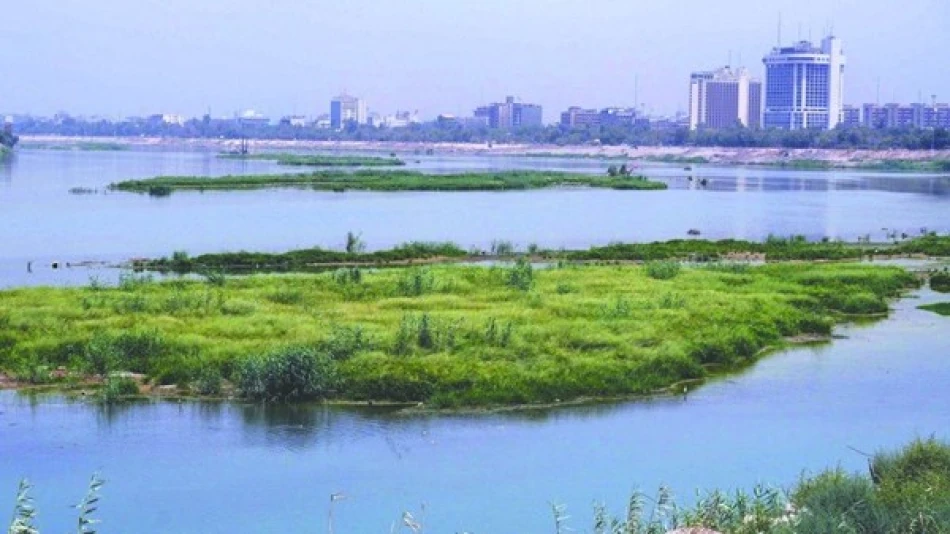
Iraq Halts Crop Cultivation Due to Water Scarcity: A Growing Crisis in the Fertile Crescent
Iraq's Agricultural Crisis: Water Shortages Force Complete Crop Halt, Threatening Food Security
Iraq faces an unprecedented agricultural crisis as severe water shortages will force a complete halt to crop cultivation in September 2025, according to Water Resources Minister Aoun Dhiab Abdullah. The shutdown threatens to end Iraq's hard-won wheat self-sufficiency achieved just two years ago, marking a dramatic reversal for a nation that produced over five million tons of wheat and signaling broader food security risks across the Middle East.
The Scale of Iraq's Water Crisis
Minister Abdullah described 2025 as potentially the most challenging year Iraq has faced in terms of water scarcity. The country's major reservoirs, including the critical Mosul Dam, have dropped to less than eight billion cubic meters—a dangerously low level that cannot meet both agricultural and urban water demands.
This crisis extends beyond Iraq's borders, reflecting a regional drought pattern that has persisted across the Middle East. The timing is particularly devastating as it coincides with the crucial planting season for winter crops, especially wheat.
Upstream Dam Operations Compound the Crisis
The minister highlighted how dam operations on the Tigris and Euphrates rivers have reduced water flow into Iraq by half compared to normal levels. New dam construction on tributaries of both rivers continues to directly impact Iraq's water allocation, creating a cascading effect that threatens the country's agricultural foundation.
Economic and Strategic Implications
The September cultivation halt means Iraq will miss this season's wheat planting entirely, reversing two years of agricultural success that had achieved food self-sufficiency. This shift from wheat exporter back to importer will have significant economic consequences, forcing Iraq to allocate precious foreign currency reserves to food imports rather than development projects.
For global commodity markets, Iraq's withdrawal from wheat production removes a stabilizing factor in Middle Eastern food security. The country's previous success in achieving over five million tons of wheat production had reduced regional dependence on volatile international markets.
Regional Food Security at Risk
Iraq's agricultural crisis mirrors broader challenges facing Middle Eastern nations, where climate change and upstream water management create cascading effects across borders. Unlike the UAE or Saudi Arabia, which have invested heavily in desalination and alternative agriculture technologies, Iraq remains heavily dependent on traditional river-fed farming.
Limited Hope for Recovery
Despite the dire situation, Minister Abdullah noted that climate forecasts suggest possible rainfall in October, coupled with lower September temperatures that could reduce evaporation rates. However, these potential improvements may come too late for the critical planting season.
The crisis underscores Iraq's urgent need for water management reforms and agricultural modernization. Without significant investment in irrigation efficiency and drought-resistant farming techniques, the country faces recurring cycles of food insecurity that could destabilize both its economy and regional food markets.
Iraq's situation serves as a stark warning for other water-stressed nations about the rapid pace at which agricultural systems can collapse under combined pressures of climate change and upstream water diversions.
Most Viewed News

 Layla Al Mansoori
Layla Al Mansoori






